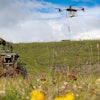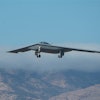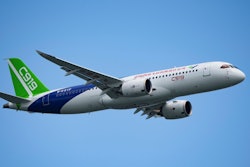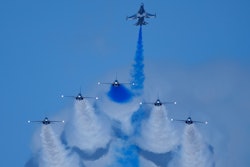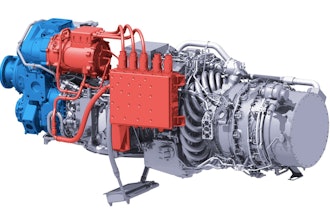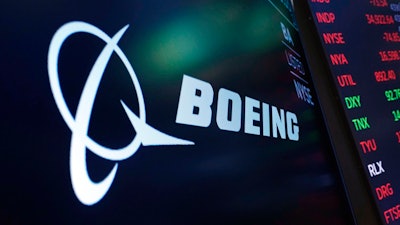
When it comes to safety culture at Boeing, there is a "disconnect" between senior management and workers, and employees responsible for checking the company's planes question whether they can raise issues without fear of retaliation, according to a panel of outside experts.
The aviation-industry and government experts also said safety training and procedures at Boeing are constantly changing, leading to confusion among employees.
The comments were contained in a report Monday to the Federal Aviation Administration. Congress ordered the study in 2020, when it passed legislation to reform how the FAA certifies new planes after two deadly crashes involving Boeing 737 Max jetliners.
Safety at Boeing is being re-examined after last month's blowout of an emergency door panel on an Alaska Airlines Max jet. Accident investigators said in a preliminary report that bolts used to help hold the panel in place were missing after the plane underwent repairs at Boeing's factory in Renton, Washington.
Since 2005, the FAA has relied on employees at Boeing and other aircraft manufacturers to perform some quality-review on behalf of the regulatory agency. After the Max crashes in 2018 and 2019 — which killed 346 people — critics in Congress said Boeing managers had put undue pressure on employees to approve work done for the FAA.
Boeing said in a statement, "We've taken important steps to foster a safety culture that empowers and encourages all employees to share their voice. But there is more work to do."
The panel of experts said Boeing has made changes that have reduced the chance of retaliation against employees who report safety problems. It added, however, that "the restructuring, while better, still allows opportunities for retaliation to occur."
Boeing has a huge backlog of orders from airlines that are eager to get new, more fuel-efficient planes. The company has increased the rate at which it produces 737s to 38 per month.
Critics including Ed Pierson, a former senior manager on the 737 program and now director of a nonprofit safety foundation, have long complained about pressure on Boeing employees not to slow down the assembly line by pointing to potential problems.
"There is a culture where employees on the front lines are learning to keep their mouths shut because a fear ... something could happen to them," Pierson said in a recent interview. "The pressure is, 'Move the plane down the line, move the plane down the line.' It's not, 'Stop, let's fix it, let's do it right.'"
CEO David Calhoun urged employees in a message last month to speak up.
"Our people on the factory floor know what we must do to improve better than anyone. We should ... always encourage any team member who raises issues that need to be addressed," Calhoun said. After the Alaska Airlines blowout, he vowed that Boeing will take its time to do the job right.
The experts on the panel said Congress didn't tell them to investigate specific incidents or accidents, but they noted that during their work, "serious quality issues with Boeing products became public." Those events amplified their concerns that safety-related practices "are not being implemented across the entire Boeing population."
The panel made 50 recommendations to Boeing, including coming up with a plan to address the experts' concerns within six months and give that plan to the FAA. The panel made three recommendations to the FAA.
The FAA said, "We will continue to hold Boeing to the highest standard of safety and will work to ensure the company comprehensively addresses these recommendations."


